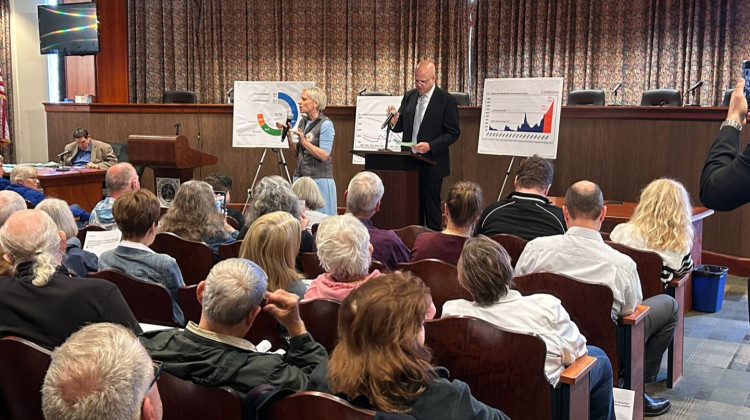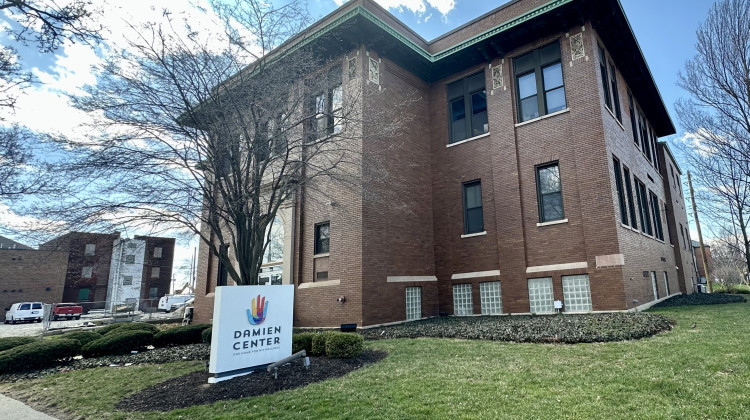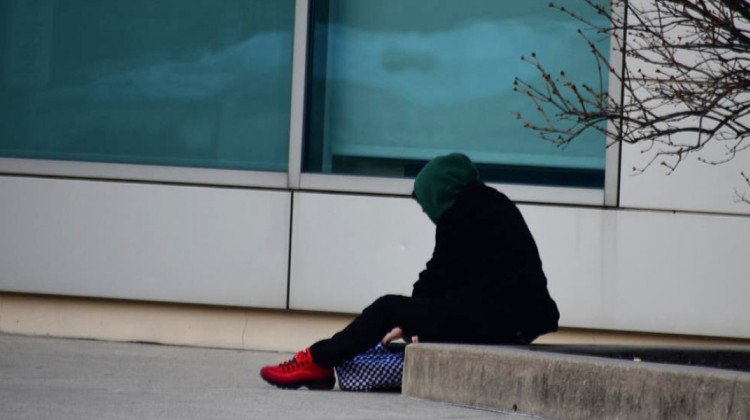“Unprecedented.”
“Very, very unique.”
“Nothing was normal.”
“Nothing was easy.”
That’s how lawmakers described this year’s legislative session, one in which COVID-19 changed the work - and the results - of the 2021 General Assembly.
The changes started last year. A small committee of lawmakers met to try to figure out how to conduct the 2021 legislative session amid the ongoing pandemic. And even that first meeting revealed potential roadblocks: one of the members had to participate virtually because he was in quarantine. And when he got disconnected, Rep. Matt Lehman (R-Berne) had to halt the meeting.
“Let’s take a five-minute recess until we get – or if he comes up in the next minute, we’ll start back up again,” Lehman said.
Ultimately, the House moved out of the Statehouse entirely into a government center across the street for its floor sessions, allowing for greater social distancing. In committees, lawmakers and the public were separated, often in different rooms, connected virtually.
House Democratic Leader Phil GiaQuinta (D-Fort Wayne) lamented the impact that had on public participation.
“Probably the worst part this session was, I think most of the public really didn’t want to come down here and testify," GiaQuinta said. "And then they would have to log on via Zoom. I think that really cut down … public input.”
Rep. Randy Frye (R-Greensburg) was one of the few lawmakers who contracted the virus during session, keeping him out of commission for two weeks.
"It certainly makes you aware of how serious it was," Frye said. "It makes you aware of the great precautions that were taken to protect these legislators and a fabulous job that everyone involved did – because we didn't have a mass outbreak of COVID amongst us."
Despite just about everyone predicting otherwise, the General Assembly never had to halt its work this year because of a COVID-19 outbreak.
To help that happen, Senate Democratic Leader Greg Taylor (D-Indianapolis) credited the work of his caucus in pushing lawmakers to wear masks and the effort of Senate Republican Leader Rodric Bray (R-Martinsville).“So, we did some things proactively to make sure that they had their masks on," Taylor said. "But I want to thank Sen. Bray because, you know, that was a heavy lift for him.”
But a COVID-19 outbreak isn’t the only way a session gets off track.
The first came less than a month in, when Gov. Eric Holcomb shut down the Statehouse for a week because of potential threats of violence surrounding the presidential inauguration. Holcomb stood by that decision, even after absolutely nothing materialized.“I will always err on the side of caution and always be safe, not sorry,” Holcomb said.
Then, about halfway through session, a House floor debate over a local schools bill took a troubling turn. Black lawmakers – including Rep. Vernon Smith (D-Gary) – expressed concerns about the potential impact of the legislation.
“And I don’t care how you twist it, how you paint it, how you disguise it, how you camouflage it – it’s racism,” Smith said. “Boo if you want to, I don’t care.”
Smith and other members of the Black Legislative Caucus were booed and heckled on the floor by some Republicans. That turned into a confrontation outside the chamber during which a white male lawmaker had to be physically restrained in an argument with a black female legislator.
Rep. Cherrish Pryor (D-Indianapolis), a Black Caucus member, said it was a defining moment.
“With some of the people that were involved, it has not bode well with me … I think it’s been very difficult,” Pryor said.
The wounds of that incident still linger. And Black Caucus Chair Robin Shackleford (D-Indianapolis) has urged change to help address it, calling for implicit bias training for all lawmakers.
“They personally feel like we’re calling them racist. They don’t understand the difference between arguing a policy and taking it personally,” Shackleford said. "So, that’s where the education can come in."
House Speaker Todd Huston (R-Fishers) apologized for his role in failing to silence his caucus’s jeering. And he said COVID-19 even made that situation worse.
“It bothered me how hard it was for members to get together and get to know each other better and spend time together," Huston said. "I thought that was unfortunate.”
Huston still hasn’t publicly committed to implicit bias training in the future.
Perhaps the biggest legislative surprise of session, though, came at its very end. Lawmakers found themselves with billions of dollars more for the new state budget, spurred in part by federal COVID-19 relief money. That led to several, long-time Democratic priorities getting put in the budget, including measures to raise teacher pay.
Not a single House Democrat voted against the state’s new spending plan. And, in a lighthearted moment, Rep. Ed DeLaney (D-Indianapolis) even recited a poem to House GOP budget architect Tim Brown (R-Crawfordsville).
“Tim Brown oft gets me to vote no. But what if he sends our schools some real dough?" DeLaney said. "A billion is tough to ignore, so take a close look at the board. For once, my vote may be a go.”
Even the session’s finale was altered by COVID-19.
“We are going to have a different type of motion this year," Speaker Huston said. "It’s going to be missing a couple of words.”
Those missing words: Sine Die, a Latin phrase signifying the official end of session. The pandemic caused delays in getting necessary information from the federal government for redistricting. That means instead of the session’s end, it became a pause, until the fall, when lawmakers will reconvene to redraw district lines.
Just one more way COVID-19 made 2021 unlike anything the Indiana General Assembly had seen before.
Contact reporter Brandon at bsmith@ipbs.org or follow him on Twitter at @brandonjsmith5.
 DONATE
DONATE







 Support WFYI. We can't do it without you.
Support WFYI. We can't do it without you.